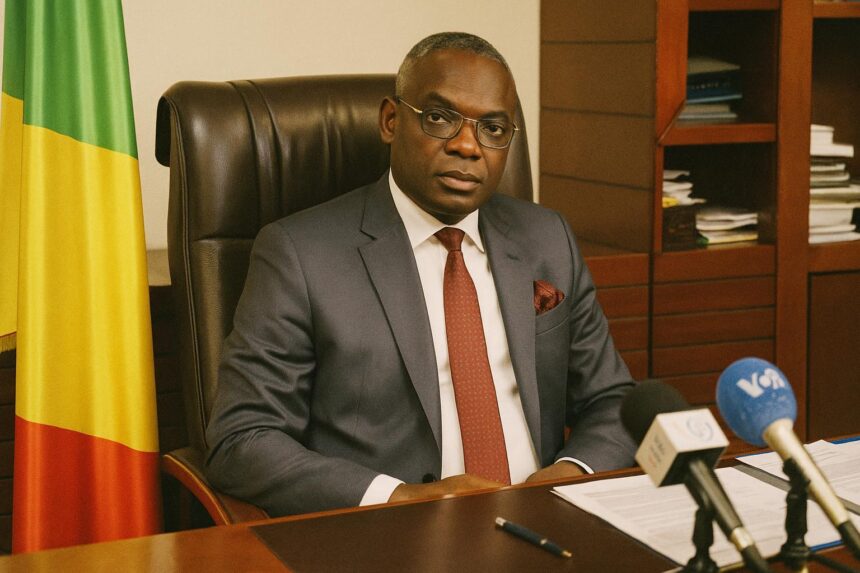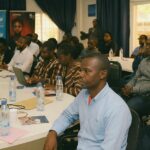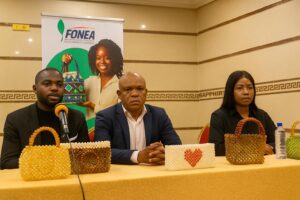UNESCO succession stakes
October’s Executive Board session at UNESCO headquarters promises more than routine protocol; it will trigger the first secret-ballot for the Director-General succession after Audrey Azoulay’s eight-year tenure. Three candidacies—Mexico’s Gabriela Ramos, Egypt’s Khaled El-Enany and Congo-Brazzaville’s Edouard-Firmin Matoko—have been officially wp-signup.phped (UNESCO).
While the race is formally multilateral, observers read it as a microcosm of wider geopolitical rebalancing: Latin American aspirations to regain leadership, Arab ambitions to consolidate influence, and Central Africa’s determination to translate long-standing rhetorical support for UNESCO’s ‘Priority Africa’ programme into senior stewardship (Brookings).
A seasoned Congolese insider
Matoko, currently Assistant Director-General for Priority Africa and External Relations, entered UNESCO in 1994 and climbed through field offices from Addis Ababa to Windhoek. His four decades in cultural diplomacy offer institutional memory prized by voting board members who often weigh continuity alongside regional rotation (UNESCO biography).
In Brazzaville, the candidature is portrayed as a national endeavour rather than an individual quest. Prime Minister Anatole Collinet Makosso describes Matoko as ‘a bridge between continents’, underscoring an academic background spanning Sofia’s Academy of Fine Arts and UNESCO’s own training institutes (RFI interview, 20 May 2024).
African Union endorsement puzzle
Custom dictates that the African Union seek consensus when an African seat becomes competitive, yet this time Addis Ababa has not delivered a single endorsed name. Makosso argues that ‘it is not for the Union to impose a vote’, invoking the principle of sovereign equality within multilateral fora (RFI).
Analysts point out that the AU’s 2008 rotational quota for UN specialised agencies is advisory, not binding. Previous races saw Nigeria and Bulgaria field simultaneous bids for WTO leadership; the precedent gives Brazzaville legal comfort even if continental unity remains an intangible diplomatic asset (ISS Pretoria).
Paris–Brazzaville under a diplomatic magnifier
France, host state and political heavyweight on UNESCO’s board, has publicly leaned toward El-Enany, praising his ministerial stewardship of Egypt’s heritage sites. In Brazzaville, officials voice disappointment, recalling French cooperation in timber processing, hospital modernisation and vaccine logistics that, they believe, warrants ‘reciprocal courtesy’ in international arenas (Le Monde).
Yet Paris and Brazzaville remain cautious not to let the UNESCO contest spill into broader bilateral files such as Pointe-Noire offshore gas or the Paris Forum on Forests. ‘We disagree on a vote, not on partnership fundamentals,’ a French diplomat notes, signalling room for discreet calibration (Reuters, June 2024).
Voting arithmetic at Executive Board
The 58-member Board distributes seats among electoral groups, giving Africa ten voices, Latin America nine and Arab States seven. Victory requires an absolute majority that narrows with each runoff round. In 2017, Azoulay secured 30 votes in round five; margins can tilt on a single handshake (UNESCO archives).
Matoko’s strategists court small island states, Francophonie members and nations benefiting from the ‘Silencing the Guns’ youth literacy pillars he championed. Mexico’s camp underscores Ramos’s OECD tenure, while Cairo reminds peers of its mediation in Gaza archaeology protection. Telephone diplomacy is intense but largely invisible to the public (Diplomatic sources).
Regional solidarity and quiet confidence
Within Central Africa, Cameroon and the Democratic Republic of Congo have signalled amicable neutrality rather than bloc discipline. Libreville’s recent alignment with Brazzaville on timber certification has, however, created goodwill that insiders expect to spill into Paris votes unless last-minute tradeoffs in other UN agencies arise (Jeune Afrique).
Matoko himself keeps a low profile, telling journalists that ‘UNESCO elections are about programmes, not personalities’. Behind closed doors, he stresses climate-resilient schooling and digital heritage mapping, themes resonant with Pacific and Nordic delegations alike, thereby broadening his appeal beyond the African caucus (France 24 interview).
Educational priorities beyond the race
Congo-Brazzaville simultaneously advances substantive dossiers. In March, it co-sponsored with Serbia a draft resolution on protecting intangible heritage in post-conflict zones, reflecting President Denis Sassou Nguesso’s stated belief that ‘peace begins in classrooms’. The text gathered cross-regional support and will resurface at the General Conference in November (UNESCO records).
Domestically, Brazzaville is pilot-testing satellite connectivity for rural schools under a memorandum with the International Telecommunication Union. Should Matoko reach the helm, officials say, such partnerships would scale institution-wide, further aligning UNESCO’s digital transformation agenda with Africa’s demographic realities (ITU press release, April 2024).
Outlook to October and beyond
Most diplomats interviewed anticipate several voting rounds, with tactical withdrawals and late-night caucuses shaping the outcome. A scenario in which Mexico and Congo converge to block Egypt, or vice versa, circulates in corridors yet remains speculative in the fluid arithmetic of multilateral elections (Chatham House briefing).
Whatever the result, Brazzaville underscores that its objective is to keep UNESCO’s compass directed toward Africa’s youthful societies. ‘Positions pass, ideas persist,’ Makosso reflects. The phrase, repeated in recent African Union sub-committee minutes, offers a measured reminder that diplomatic campaigns rarely end on voting day (AU notes).
For Congo’s foreign service cadres, the campaign doubles as on-the-job training; junior diplomats prepare non-papers, map voting intentions and refine outreach skills that will serve future Security Council or FAO contests.






















